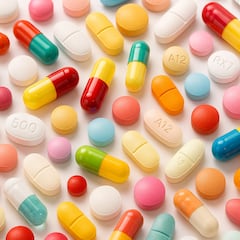Some people struggle to function without their morning caffeine injection, and a number of theories exist as to the name ‘Joe’ of our daily pick-me-up.

It’s National Coffee Day but why do we say “a cup of joe”?

National Coffee Day has arrived once again, the day we toast to our beloved brew, although given the number of mugs some of my colleagues drink, we could celebrate it 365 days a year! Coffee does, though, have a way of connecting us all, from early-morning commuters to late-night students. But amidst all the lattes, cappuccinos, and espressos, one classic term for coffee still stands tall: “a cup of joe.”
Some see it as a charming, almost nostalgic phrase, but many have no real idea where it came from. So we thought we’d dive into the mystery behind this popular term, and what’s more appropriate than doing so with a fresh cup of coffee in hand?
What is the sailor’s sobriety theory?
One of the most compelling (and often-repeated) origin stories involves Josephus Daniels, Secretary of the US Navy from 1913 to 1921. Picture this: it’s 1914, and sailors on US Navy ships are accustomed to a steady flow of alcohol to keep morale high on the open seas. Enter Daniels, who – perhaps in a bid to make the Navy a bit more wholesome – bans alcohol aboard Navy vessels. Suddenly, sailors have to make do with coffee, the next best thing to liquor (in terms of keeping spirits up, of course).
While this theory is certainly colourful, there’s one hiccup: there’s no clear record of sailors ever referring to their coffee as “Joe” in reaction to the ban. Still, it’s fun to imagine sailors muttering under their breath as they reached for their cups of coffee, grumbling, “I guess this is my cup of Joe now.”
Java, Jamoke, and Joe?
Another popular explanation ties the phrase to the unique language that evolved around coffee itself. Coffee has long been referred to as “java,” named after the Indonesian island that was a significant coffee producer. The term “jamoke” also entered the coffee lexicon, believed to be a combination of “java” and “mocha,” both types of coffee beans. Over time, it’s said, the word “jamoke” shortened to “joe” for simplicity’s sake.
While this theory doesn’t involve any government officials or sweeping bans, it does have a certain linguistic elegance. Imagine coffeehouses bustling with activity, and patrons shortening the terms to make their conversations about coffee as efficient as their caffeine intake.
Free medium coffee AND any doughnut on National Coffee Day at participating shops, cuz Joe Jonas said so. #KrispyKremeXJoeJonas #NationalCoffeeDay
— Krispy Kreme (@krispykreme) September 24, 2025
See full terms at https://t.co/sXfAymcDo3 pic.twitter.com/8R1ShtBPQ8
Joe: the drink of the everyday guy
Perhaps the simplest explanation comes from the idea that “Joe” refers to the “everyman.” Coffee has long been considered the drink of the common person, enjoyed by everyone from factory workers to office clerks. “Joe,” a casual, everyman’s name, might have been the perfect moniker for such a universal drink. After all, when something is so common and beloved by nearly everyone – yes, yes, some people detest it – it makes sense that we’d give it a simple name.
This theory feels especially apt when you think about the widespread appeal of coffee. Whether you’re grabbing a cup from a corner café or brewing a pot at home, coffee has become a daily ritual for millions, transcending social classes and geographical boundaries. If coffee were a person, “Joe” would surely be a good fit for the approachable, friendly image it carries.
GM and Happy #Nationalcoffeeday pic.twitter.com/EDfotQpQx6
— Fanzo (@iSocialFanz) September 29, 2025
So, why Joe? We don’t really know
Related stories
Ultimately, while there are a clearly few competing theories, none can be definitively proven. Maybe it’s thanks to Secretary Daniels, or maybe it’s just the natural evolution of language. Either way, “a cup of joe” has become one of those phrases that feels comforting, like slipping into a well-worn sweater or curling up with a good book. It’s as down-to-earth as coffee itself.
So, next time you sip your “cup of joe,” take a moment to reflect on the potentially fascinating history behind the phrase. Whether you’re a fan of the sailor’s sobriety story, the linguistic evolution of “jamoke,” or just the idea of coffee being the common man’s drink, one thing’s for sure – coffee by any other name would still taste as sweet to those lovers of it out there. And that, my friends, is something worth raising your caffeine-filled mug to. Happy National Coffee Day!


Complete your personal details to comment